George Floyd's death 'so similar' to Sheku's
- Published
George Floyd's death was "so similar" to Sheku's
The sister of a man who died in police custody in Fife says the video of George Floyd's death in the US brought back memories of her brother.
Sheku Bayoh never regained consciousness after he was restrained by police in Kirkcaldy in May 2015.
Protests over the death of Mr Floyd, who was being restrained by police, have resonated with the family.
Like George Floyd's family, Kadi Johnson believes her brother would not have died as he did if he was white.
She told BBC Scotland she could not even watch the video of Mr Floyd being restrained by police in Minneapolis.
The officers who restrained Mr Bayoh have always denied any wrongdoing.
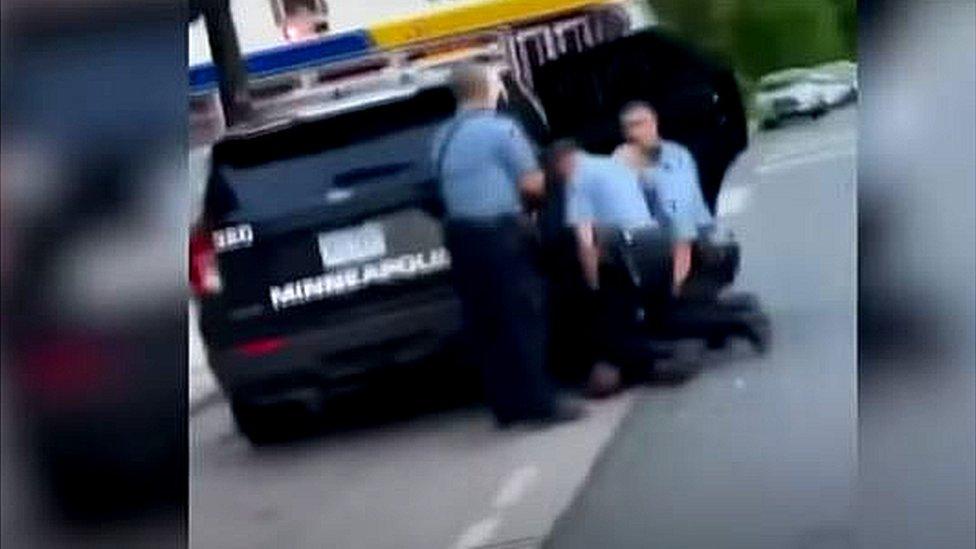
A video showing George Floyd being restrained by four police officers sparked outrage across the globe
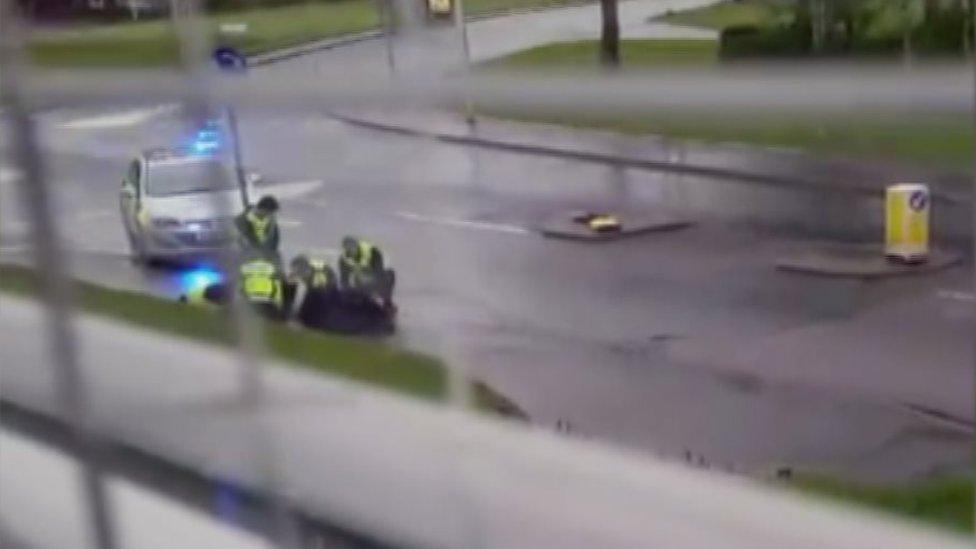
A BBC investigation revealed footage of the Sheku Bayoh incident
Ms Johnson said: "I could just see my brother, the way he was handled by the police. And it just brought me so much anger and pain, I relived the whole situation again. I was angry and hurt."
She could see similarities: "George Floyd cried 'I can't breathe', the same thing happened to Sheku. He cried 'I can't breathe, get off me'. Why should our black brothers die in the hands of our police who are supposed to protect us?"
Asked if she felt Mr Bayoh would have been treated differently if he was white, his sister said: "Definitely. If he was a white man that is not the way his life would have ended. There is no doubt about it.
"We have seen other police officers handling white people who have committed severe crimes - they are not dead. Some of them are not even in jail, they are in hospital. But my brother had to die."
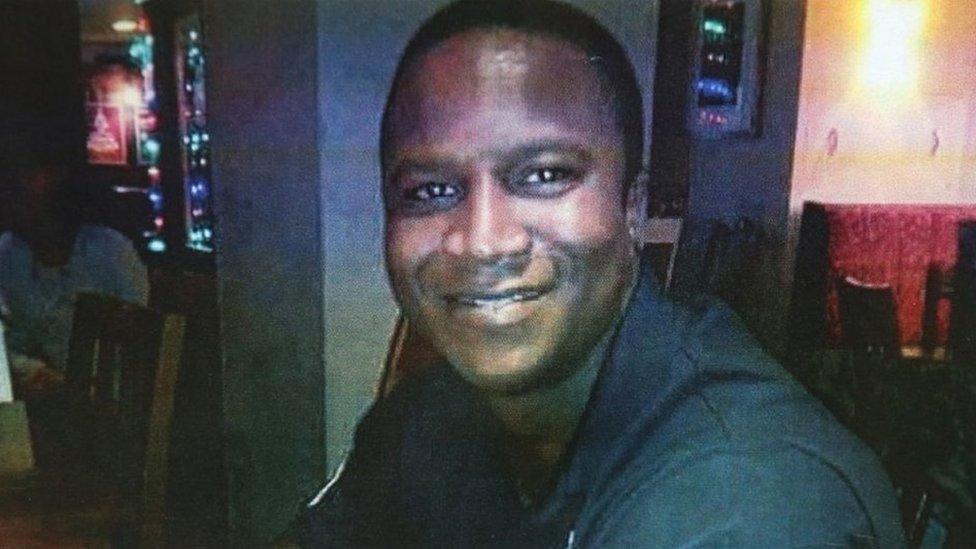
Sheku Bayoh died in police custody in Fife in 2015
Mr Bayoh was 32 years old when he died. He was found to have suffered 23 separate injuries.
The officers involved have always denied any wrongdoing. No prosecutions were made and Mr Bayoh's death will now be the subject of a public inquiry.
Ms Johnson said: "If he was behaving erratically the police are trained to de-escalate situations like that why did they not use that to save my brother?
"If my brother broke the law he should have been dealt with accordingly. If excessive force was used then that is not acceptable."
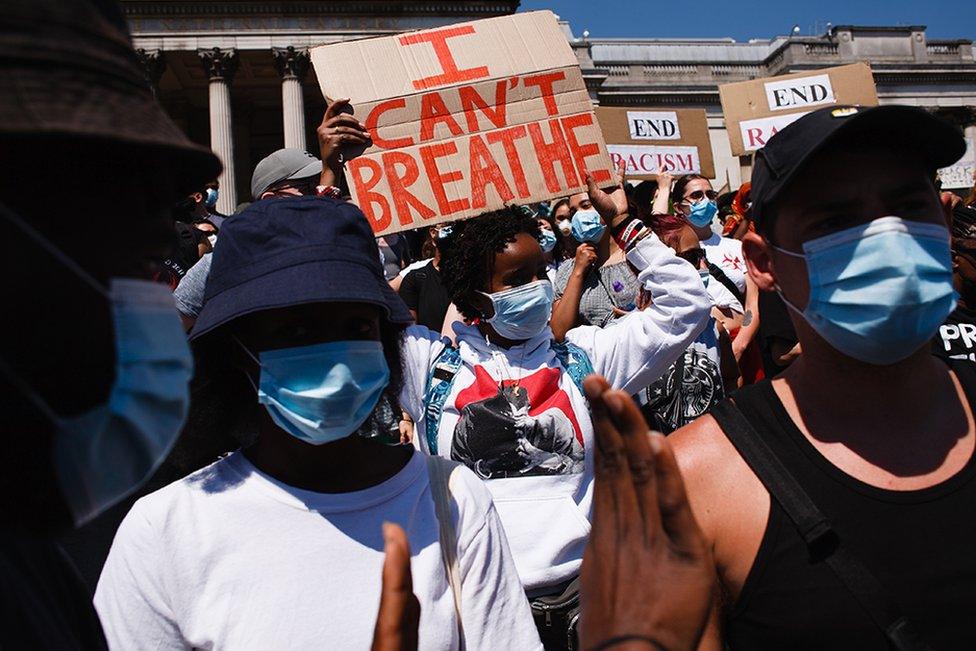
George Floyd was heard crying "I can't breathe" before he died
Back in 2015, police in Kirkcaldy had responded to calls about a man behaving erratically with a knife. By the time they got there Sheku Bayoh was not carrying a weapon. He had taken the drugs MDMA and Flakk.
Police used CS spray and leg restraints and batons to subdue him. He died shortly afterwards in hospital.
Ms Johnson said he had everything to live for: "He shouldn't have died the way he died.
"He had so many plans. He lived for his boys and wanted to see them grow up.
"But all that was taken away from him. His mother cries every day."
George Floyd's story has caused a global outcry, and Sheku Bayoh's family wish his death had too.
His friends wanted to take to the streets the day it happened but, as Ms Johnson said, they trusted in the authorities.
She said: "We had to keep our cool. We trusted in the authorities because they promised they would do the right thing."
But scenes of protesters taking to the streets stirred the younger members of her family.
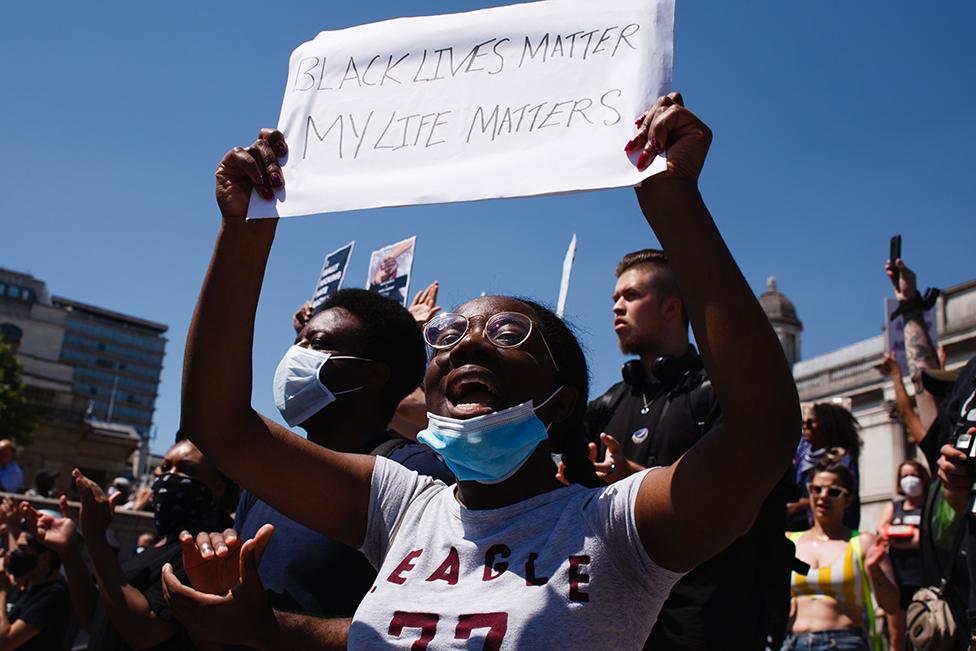
Thousands of people turned out to protest against racism in London, Manchester and Cardiff
She said: "We are black people but we are not bad people. We contribute a lot to society so why do our children have to feel afraid walking in the streets.
"My children and nieces and nephews are angry. When they saw George Floyd's video they were angry and hurt, remembering their uncle and how he died.
"Enough is enough."
Ms Johnson joined with the family lawyer Aamer Anwar, Justice Secretary Humza Yousaf and Labour MSP Anas Sarwar to issue a joint statement urging those demanding justice for George Floyd to protest digitally due to the coronavirus pandemic.
The joint statement highlighted UK Government statistics showing BAME lives have been disproportionately impacted by Covid-19.
It said that due to the "fragility" of Scotland's situation easing out of lockdown, that people should avoid gathering in protest.
'Anger and sadness'
A nurse, Ms Johnson also said she would not be attending Black Lives Matter protests planned for Sunday as the danger of the spread of coronavirus was still too great.
Humza Yousaf said: "I fully understand and feel the anger, and the sadness, that leads people to want to gather together and to show solidarity and community at this time.
"Unfortunately, the threat of Covid-19 is still with us and I must urge people not to attend mass gatherings, which pose a clear risk to public health, even with social distancing in place."
- Published21 May 2020

- Published2 June 2020
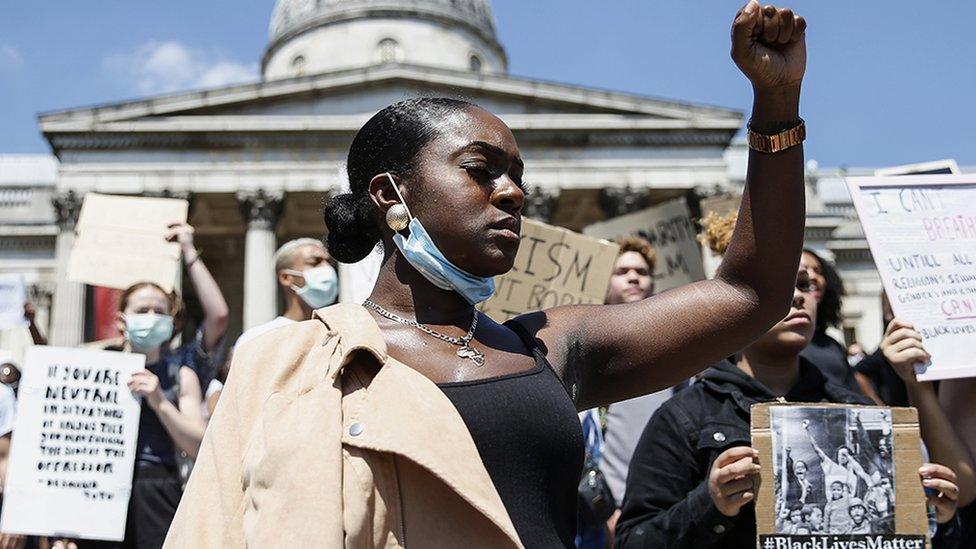
- Published12 November 2019

- Published16 December 2019

- Published11 November 2019
